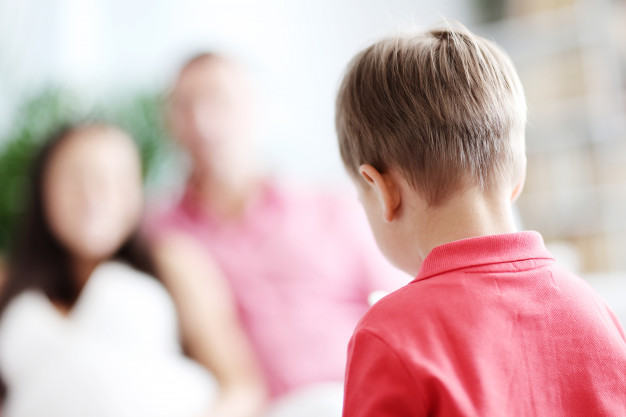Dear hiver of this beautiful community, today I want us to reflect on an essential topic: Children's emotions.


Antes de iniciar, quiero que sepas que aún no soy madre, pero mis pasiones profesionales están enfocadas en el maravilloso universo dentro de los niños, así que me abro a la comprensión de todos los aspectos relacionados a su ser. Entre los que me causa gran fascinación e interés, su mundo emocional.
Before I begin, I want you to know that I am not yet a mother, but my professional passions are focused on the wonderful universe within children, so I am open to understanding all aspects of their being. Among those that cause me great fascination and interest, their emotional world.
Los seres humanos somos seres emocionales, esa una verdad indiscutible, y aunque nos hagan pensar que somos seres “racionales” lo cierto es que esa racionalidad, nace de la emocionalidad. Por lo que es necesario comprender, que toda acción tiene su fundamento en una emoción.
Human beings are emotional beings, that is an indisputable truth, and although we are made to think that we are "rational" beings, the truth is that rationality is born from emotionality, so it is necessary to understand that every action is based on an emotion.
Claro, esto no significa que vamos a actuar de una manera desmedida y culpar a la emoción, porque una de las cosas que debemos aprender a hacer en este plano, es a canalizar y transcender las emociones para conocer realmente lo que somos… Pero, ese es otro tema que solo voy a mencionar para introducir la siguiente verdad.
Of course, this does not mean that we are going to act in a disproportionate way and blame the emotion, because one of the things we must learn to do in this plane, is to channel and transcend emotions to really know what we are... But, that is another topic that I will only mention to introduce the following truth.
Los adultos comprendemos lo que significa la inteligencia emocional, o bueno, deberíamos comprenderlo. En su mayoría, sabemos cómo canalizar una emoción y expresarla de la manera correcta, porque hemos aprendido a hacerlo. No obstante a ello, no nos podemos engañar y negar que muchas veces las emociones nos dominan y solo queremos gritar… Entonces ¿Cómo no podría ocurrirle eso a un niño?
Adults understand what emotional intelligence means, or well, we should understand it. For the most part, we know how to channel an emotion and express it in the right way, because we have learned how to do it. However, we can't fool ourselves and deny that many times emotions overpower us and we just want to scream... So how could that not happen to a child?


¿Cuántas veces has pensado, en medio del llanto de un niño, que solo está siendo malcriado? Muchas. Ahora bien, ¿cuántas veces has pensado que ese llanto es producto de una emoción que no sabe expresar? Pocas veces, o ninguna.
How many times have you thought, in the midst of a child's crying, that they are just being spoiled? Many times. Now, how many times have you thought that this crying is the product of an emotion that he does not know how to express? Few, if any.
Solo imagina lo desesperante que debe ser intentar explicar algo y que no conozcas las palabras para hacerlo, o que, a pesar de que las conozcas, la persona a quien tratas de comunicarle la emoción no te escuche porque piensa que “no es importante”. Querrías gritar y llorar, ¿verdad? Porque quizá pienses, que solo de esta manera puedes llamar la atención y lograr que te escuchen.
Just imagine how desperate it must be to try to explain something and you don't know the words to do it, or that, even though you do, the person you're trying to communicate the emotion to won't listen because they think "it's not important." You'd want to scream and cry, wouldn't you? Because maybe you think that this is the only way you can get attention and be heard.
Bien, creo que ya comprendiste el punto, pero aun así lo resalto: Muchas veces la “rabieta” de un niño, es solo un mensaje suplicante que dice “escúchame, por favor”.
Well, I think you get the point, but I still emphasize it: Many times a child's "tantrum" is just a pleading message saying "please listen to me ".


“Anita sin querer rompió su muñeca favorita y comenzó a gritar y llorar fuertemente. Su madre no comprendió que ella solo estaba molesta consigo misma por dañar su muñeca y en lugar de sentarse a su lado y decirle que los accidentes pasan, la reprende, por lo que Anita se siente mucho más culpable y crece insegura de sí misma, reprendiéndose por cada error que cometa”.
"Anita unintentionally broke her favorite doll and began to scream and cry loudly. Her mother didn't understand that she was just upset with herself for damaging her doll and instead of sitting by her side and telling her that accidents happen, she scolds her, so Anita feels much more guilty and grows insecure about herself, berating herself for every mistake she makes. "
Quién diría que un “tonto” regaño en esa situación, afectaría el desarrollo emocional de Anita ¿verdad? Pero justo allí, se encuentra el detalle más importante: Para los niños nada es “tonto”, muchísimo menos, nada relacionado con sus emociones.
Who would think that a "silly" scolding in that situation would affect Anita's emotional development, right? But therein lies the most important detail: For children, nothing is "silly", much less, nothing related to their emotions.


Si el llanto incesante fuese una “rabieta” entonces tendríamos que decir que cuando un bebé nace, hace una rabieta. Pero obviamente no es así.
El llanto es nuestro mecanismo de expresión innato, es la primera forma de expresión que conocemos y también, nuestro regulador de emociones por excelencia. Para un niño, llorar es la única manera de expresarse y eso está bien.
If incessant crying were a "tantrum" then we would have to say that when a baby is born, it throws a tantrum. But this is obviously not the case.
Crying is our innate mechanism of expression, it is the first form of expression we know and also, our emotion regulator par excellence. For a child, crying is the only way to express itself and that's okay.
Si lo reprendemos en medio de este llanto que no comprendemos, el mensaje que estamos dándole al niño es que “no apoyamos su emoción”. El niño no va a comprender que lo estás reprendiendo por alterarse, gritar y patalear, sino que lo reprendes “por sentir”.
If we reprimand him in the middle of this crying that we do not understand, the message we are giving the child is that "we do not support his emotion". The child will not understand that you are reprimanding him for getting upset, screaming and kicking, but that you are reprimanding him "for feeling ".


Algunos sabios dicen que los adultos tenemos muchas más cosas que aprender de los niños, que ellos de nosotros, y yo estoy totalmente de acuerdo con eso.
Some sages say that we adults have much more to learn from children than they have to learn from us, and I totally agree with that.
Es nuestro deber saber escuchar las necesidades de los niños y saber expresar las nuestras, porque, aunque sean necesidades totalmente distintas, no existe una con mayor importancia, ni otra que no tenga coherencia.
It is our duty to know how to listen to children's needs and to know how to express our own, because, although they are totally different needs, there is no one that is more important, nor another that has no coherence.
Pero, antes de aprender a escuchar las necesidades de los niños, debes saber escuchar claramente las tuyas, aceptarlas, vivirlas y no juzgarlas. Solo así podrás comprender una emoción que no te pertenece, pero que estará fuertemente influenciada por ti.
But, before learning to listen to children's needs, you must know how to listen clearly to your own, accept them, live them and not judge them. Only in this way will you be able to understand an emotion that does not belong to you, but which will be strongly influenced by you.


Es un tema amplio, lleno de emociones y complejidad. Hoy culminaré aquí, pero antes de despedirme quiero enfatizar que con todo esto NO quiero hacerte pensar que las “rabietas” merecen aplausos solo quiero que comprendas que no son solo gritos y pataleos, sino que corresponden a una fuerte emoción que el niño necesita soltar y que los adultos deberíamos escuchar… Y que para corregirlas no son necesarias fuertes reprimendas, sino una conversación de corazón a corazón en la que ambas partes se escuchen y construyan una relación en la que sentir este bien.
It is a broad topic, full of emotions and complexity. Today I will end here, but before I say goodbye I want to emphasize that with all this I do NOT want to make you think that "tantrums" deserve applause I just want you to understand that they are not just screams and tantrums, but that they correspond to a strong emotion that the child needs to release and that adults should listen to... And that to correct them, strong reprimands are not necessary, but a heart to heart conversation in which both parties listen to each other and build a relationship in which feeling is ok..

Muchas gracias por leerme, me encantará también leer tu perspectiva de este enfoque.
Thank you very much for reading me, I will love to read your perspective on this approach as well.

Important: Anita's case was improvised to achieve the understanding of the subject. The images belong to Freepik.es. The designs and dividers were made by myself in the Canva platform. The translation into English in the translator DeepL

Your content has been voted as a part of Encouragement program. Keep up the good work!
Use Ecency daily to boost your growth on platform!
Support Ecency
Vote for Proposal
Delegate HP and earn more
Los seres humanos fuimos creados en tres dimensiones: alma, cuerpo y espíritu.
Y es en nuestra alma de están todos nuestros sentimientos y emociones y desde que estamos en el vientre de nuestras madres, podemos percibir la aceptación, el amor, el rechazo, el abandono, la soledad y el maltrato; por eso cuando se nace nuestra alma ya viene marcada a causa de lo que se percibió en el vientre de la madre y por ello encontramos bebés que suelen ser tranquilos y calmados y otros que continuamente están llorando y temerosos.
Así es, Ana. Gracias por dejar tu valioso y hermoso aporte. Un abrazo!
Congratulations @alvarezjessica! You have completed the following achievement on the Hive blockchain and have been rewarded with new badge(s) :
Your next target is to reach 200 upvotes.
You can view your badges on your board and compare yourself to others in the Ranking
If you no longer want to receive notifications, reply to this comment with the word
STOP